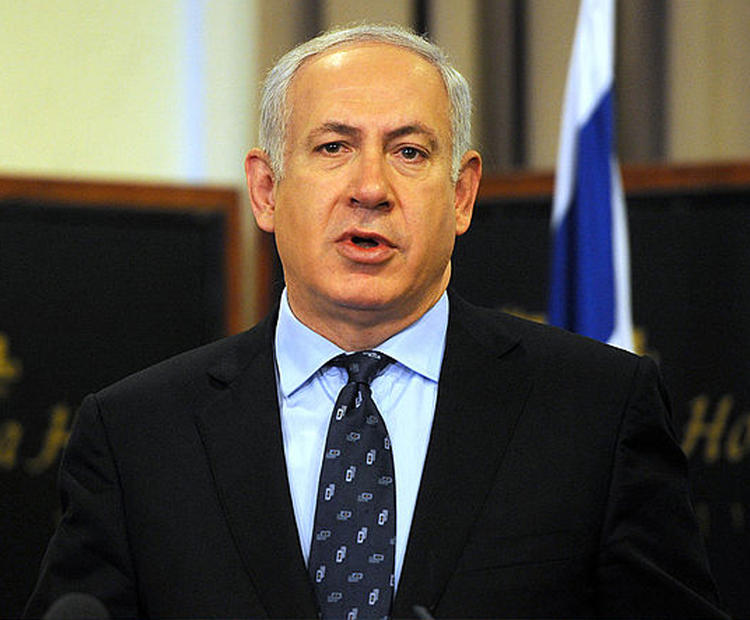RT | —-
A nuclear deal with Iran based on current framework will “threaten the survival of Israel”, said PM Benjamin Netanyahu, warning it would increase the risk of a “horrific war.”
In a phone conversation with the US President, the Israeli Prime
Minister expressed his opposition to a framework agreement
reached with [Iran] on Thursday.
PM spoke to President Obama, expressed Israel’s opposition to
the framework agreement with Iran which poses danger to Israel,
region & world
” PM of Israel (@IsraeliPM) April
2, 2015
Netanyahu has once again called for a “better deal”
insisting that the only way to reach it would be “standing
firm and increasing the pressure on Iran.”
Netanyahu warned that if the final deal due to be signed in June,
fell in line with the current framework, it would “increase
the risks of nuclear proliferation in the region and the risks of
a horrific war.”
Prime Minister Netanyahu: Such a deal would not block Iran’s
path to the bomb. It would pave it.
” PM of Israel (@IsraeliPM) April
2, 2015
Successful negotiations and a sealed deal would
“legitimize” Iran’s nuclear program, which Netanyahu
insists is militarized and designed to increase aggression and
bring more terror throughout the Middle East.
Any deal must significantly roll back Iran’s nuclear
capabilities and stop its terrorism and aggression. #IranTalkspic.twitter.com/um3htQJPTA
Barack Obama called Netanyahu on Thursday evening to discuss the
agreement reached with Iran following eight-day talks in
Switzerland and convince him that the deal represents significant
progress toward cutting off “all of Iran’s pathways to a
nuclear weapon.”
“It is a good deal. A deal that meets our core
objectives,” the US President said earlier in his public
address from the White House. “If this framework leads to the
final deal, it would make our country, allies and the world
safer.”
However, Obama reassured Netanyahu that the progress does not
diminish concerns about “Iran’s sponsorship of terrorism and
threats towards Israel,” the White House said in a
statement.
Iran’s foreign minister Mohammad Javad Zarif said that despite
the agreement reached, normalizing relations with Washington is
far from over for Tehran.
“Iran and US relations have nothing to do with this, which
was an attempt to resolve the nuclear issue … We have serious
differences with the United States,” Zarif said. “We have built mutual distrust in
the past…So what I hope is that through courageous
implementation of this, some of that trust could be remedied. But
that is for us all to wait and see.”
Under the terms of the preliminary deal Iran reached in
Switzerland on Thursday, Iran agreed to reduce its uranium
enrichment capabilities by two-thirds and keep only 6,104 of its
first-generation centrifuges.
Tehran agreed not to enrich uranium over the 3.67 percent mark
for at least 15 years. It also made concessions to reduce its
current stockpile of low-enriched uranium and not build any new
facilities for 15 years.
The country also agreed to convert its highly secured facility at
Fordow so that it would no longer enrich uranium. Limits on
enrichment have also been placed at Natanz facility. The deal
also paves the way for inspections and transparency mechanisms
where the IAEA will have regular access to all of Iran’s nuclear
facilities.
In return “ after the IAEA verification“ Iran will receive
sanctions relief as US and EU have agreed to halt nuclear-related
restriction on Iran.




 © 2025 All Rights Reserved
© 2025 All Rights Reserved